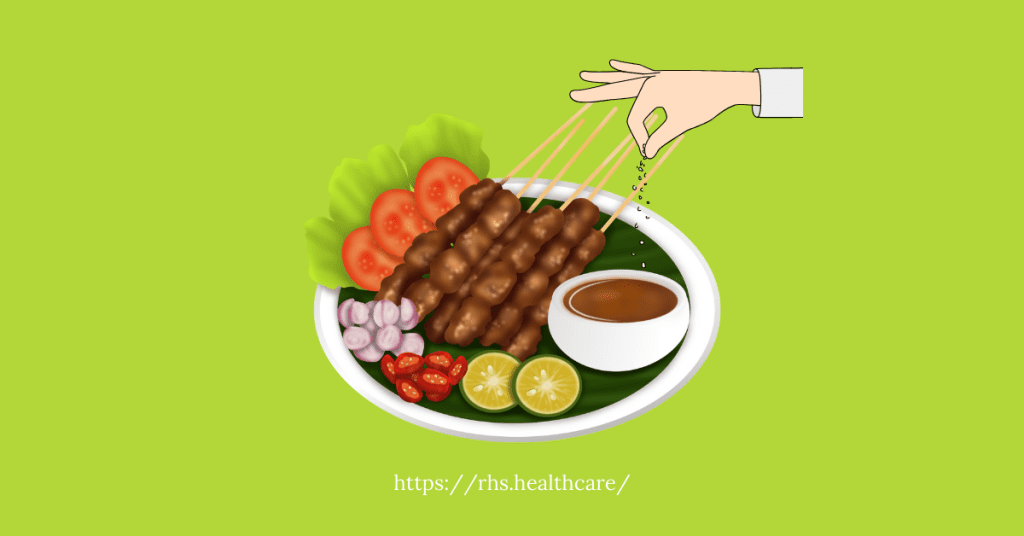In our ever-evolving world, keeping abreast of the latest developments in food and nutrition is vital for maintaining health and well-being. With the abundance of information available today, “food and nutrition service news” is crucial. This guide will delve deeper into why staying informed about food and nutrition is important, how to access reliable information and the benefits of being well-informed.
The Importance of Food and Nutrition Service News
The following points illustrate the importance of food and nutrition services news are given below.
1. Enhancing Health and Well-being
Understanding the latest trends and research in food and nutrition allows you to make informed dietary choices. These choices can significantly impact your physical health, energy levels, and overall quality of life. For instance, knowing the benefits of a balanced diet rich in fruits, vegetables, whole grains, and lean proteins can help you maintain a healthy weight and reduce the risk of chronic diseases.
2. Adhering to Updated Dietary Guidelines
Health organizations and governments frequently update dietary guidelines based on the latest scientific research. These updates can influence national health policies and individual dietary recommendations. By staying informed through reputable news sources, you can ensure your diet aligns with the most current guidelines, promoting optimal health.
3. Staying Ahead of Innovations in Food Science
The field of food science is continually evolving, with new research, products, and dietary supplements emerging regularly. Food and nutrition news can introduce you to these innovations, such as probiotics for gut health, plant-based protein sources, or fortified foods designed to address specific nutritional deficiencies.
4. Ensuring Food Safety
Food safety is a critical aspect of nutrition. News services often report on food recalls, contamination incidents, and safety alerts. By staying updated, you can avoid potentially harmful products and ensure the food you consume is safe and healthy.
5. Understanding Nutritional Trends

From plant-based diets and intermittent fasting to the ketogenic diet, nutritional trends are constantly changing. Keeping up with these trends allows you to explore different dietary approaches and determine what works best for your health and lifestyle.
5.1. How to Stay Informed
5.1.1. Subscribe to Reputable Newsletters
Many health and nutrition websites offer newsletters that provide regular updates on the latest research, trends, and dietary guidelines. Subscribing to these newsletters ensures you receive timely and accurate information directly in your inbox.
5.1.2. Follow Trusted Blogs and Websites
Numerous blogs and websites are dedicated to food and nutrition. Following these sources can provide in-depth articles, expert opinions, and practical advice on maintaining a healthy diet. Look for sources that are backed by scientific research and written by qualified professionals.
5.1.3. Join Online Communities
Social media platforms and forums host communities focused on food and nutrition. Joining these communities can provide access to a wealth of information, peer support, and the opportunity to engage in discussions with like-minded individuals.
5.1.4. Monitor Government and Health Organization Updates
Organizations such as the World Health Organization (WHO), the Food and Drug Administration (FDA), and local health departments regularly release updates on dietary guidelines, food safety, and nutrition research. Keeping an eye on these announcements can provide reliable and authoritative information.
5.1.5. Utilize Mobile Apps
Several mobile apps are designed to provide nutrition information and news. These apps can be a convenient way to stay updated on the go, offering features such as personalized dietary recommendations, recipe suggestions, and the latest news in food and nutrition.
5.2. Benefits of Staying Updated
5.2.1. Making Informed Health Choices
Access to the latest information enables you to make informed decisions about your diet and lifestyle. This knowledge can help you choose nutrient-dense foods, avoid unhealthy options, and adopt habits that promote long-term health.
5.2.2. Preventing Chronic Diseases
Staying informed about the latest research on nutrition and health can aid in the prevention of chronic diseases such as diabetes, heart disease, and obesity. Understanding the role of diet in disease prevention empowers you to take proactive steps toward maintaining your health.
5.2.3. Enhancing Mental Health
The link between nutrition and mental health is a growing area of interest in scientific research. What you eat can significantly influence your mood, cognitive function, and overall mental well-being. By staying informed about the latest research, you can make dietary choices that support mental health and enhance your quality of life. Here’s a more detailed exploration of how nutrition impacts mental health and the specific foods that can benefit your brain.
5.2.4. Improving Cooking Skills
One of the significant benefits of staying updated with food and nutrition news is the wealth of resources available to help you improve your cooking skills. Being adept in the kitchen not only makes meal preparation more enjoyable but also enables you to maintain a nutritious diet more effectively. Here’s how keeping up with the latest in food and nutrition can enhance your cooking abilities and support your health goals.
5.2.5 Access to Healthy Recipes

Food and nutrition news sources often feature a variety of healthy recipes that cater to different dietary needs and preferences. Whether you’re looking for plant-based options, low-carb meals, or dishes that accommodate specific food allergies, you’ll find a plethora of recipes to explore. These recipes are usually developed by nutrition experts and chefs who prioritize balanced nutrition and great taste.
6. Raising Awareness of Ethical and Environmental Issues in Food and Nutrition
Food production and consumption are not just about nourishing our bodies—they also have profound ethical and environmental implications. By staying informed about these issues, you can make more conscious and responsible food choices that contribute to a healthier planet and a more equitable food system. Here’s a deeper look into the critical ethical and environmental concerns associated with food and nutrition, and how staying updated on these topics can inspire positive change.
6.1. Sustainable Farming Practices
Sustainable farming practices aim to produce food in ways that are environmentally friendly, socially responsible, and economically viable. These practices help preserve natural resources, reduce pollution, and promote animal welfare. Staying informed about sustainable farming can guide your purchasing decisions and support farmers who prioritize sustainability.
Key Aspects of Sustainable Farming:
- Organic Agriculture: Avoids the use of synthetic pesticides and fertilizers, promoting soil health and biodiversity.
- Regenerative Agriculture: Focuses on restoring soil health, increasing biodiversity, and capturing carbon to combat climate change.
- Fair Trade: Ensures fair wages and working conditions for farmers and workers, often in developing countries.
- Local and Seasonal Eating: Supports local farmers, reduces food miles, and promotes the consumption of fresh, in-season produce.
6.2. Food Waste Reduction
Food waste is a significant issue with both ethical and environmental ramifications. Approximately one-third of all food produced globally is wasted, contributing to unnecessary resource use and greenhouse gas emissions. By staying informed about food waste reduction strategies, you can take steps to minimize waste in your household and community.
Ways to Reduce Food Waste:
- Meal Planning: Plan your meals and make shopping lists to buy only what you need.
- Proper Storage: Store food correctly to extend its shelf life and prevent spoilage.
- Creative Cooking: Use leftovers creatively to make new meals, and embrace “ugly” produce that might otherwise be discarded.
- Composting: Compost food scraps to reduce landfill waste and create nutrient-rich soil for gardening.
Environmental Impact of Different Diets
The dietary choices we make have varying impacts on the environment. Some diets are more resource-intensive and contribute more significantly to environmental degradation. Staying updated on the environmental impacts of different diets can help you make more sustainable food choices
Comparing Diets:
- Plant-Based Diets: Generally have a lower environmental footprint, requiring fewer resources like water and land, and producing fewer greenhouse gases compared to animal-based diets.
- Flexitarian Diets: Focus on reducing meat consumption while still incorporating some animal products, offering a more sustainable alternative to traditional Western diets.
- Meat-Heavy Diets: Typically have a higher environmental impact due to the resources required for raising livestock, including feed, water, and land, as well as the greenhouse gases produced.
Ethical Considerations
Ethical concerns in food production and consumption often revolve around animal welfare, labor rights, and social justice. Staying informed about these issues can guide you toward more ethical food choices.
Ethical Food Choices:
- Animal Welfare: Choose products from farms that prioritize the humane treatment of animals, such as free-range eggs and grass-fed beef.
- Fair Labor Practices: Support brands and products that ensure fair wages and safe working conditions for their workers.
- Social Justice: Advocate for and support policies that promote food security and equitable access to nutritious food for all communities.
Conclusion
Staying updated with “food and nutrition service news” is not just about keeping up with the latest trends; it’s about empowering yourself with the knowledge to make better health decisions. By subscribing to reputable newsletters, following trusted blogs, joining online communities, monitoring updates from health organizations, and using mobile apps, you can stay well-informed and proactive in your approach to nutrition.
Knowledge is a powerful tool in the pursuit of health and well-being. By making it a habit to stay informed about food and nutrition, you not only enhance your health but also contribute to a healthier, more informed community. Embrace the power of information and let it guide you toward a healthier, more fulfilling life.
FAQs
What is a balanced diet?
A balanced diet includes a variety of foods in the right proportions to provide the nutrients your body needs. It typically consists of:
– Fruits and vegetables
– Whole grains
– Lean proteins (such as fish, poultry, beans, and nuts)
– Dairy or dairy alternatives
– Healthy fats (like those found in avocados, nuts, and olive oil)
How much water should I drink daily?
The amount of water you need depends on various factors, including your age, sex, weight, and activity level. A general guideline is to drink about 8 glasses (64 ounces) of water a day, but some people may need more or less.
Why is fiber important in the diet?
Fiber is essential for maintaining digestive health, preventing constipation, and lowering cholesterol levels. It also helps control blood sugar levels and supports weight management. Good sources of fiber include fruits, vegetables, whole grains, and legumes.
What are antioxidants, and why are they important?
Antioxidants are compounds that protect your cells from damage caused by free radicals, which are unstable molecules that can lead to chronic diseases. Foods rich in antioxidants include berries, nuts, dark chocolate, and green leafy vegetables.
How much protein do I need daily?
The recommended daily intake of protein varies based on factors like age, sex, and activity level. Generally, adults should aim for 0.8 grams of protein per kilogram of body weight. Active individuals and athletes may require more protein to support muscle repair and growth.
We always provide you with healthy content according to trending health technologies and issues. We also Serve home care nursing services in Islamabad, Rawalpindi, and the Surrounding.
Feel free to contact us for free online consulting.


